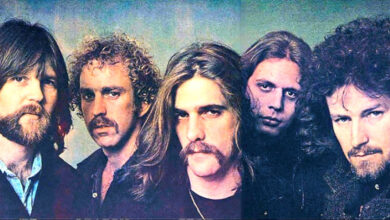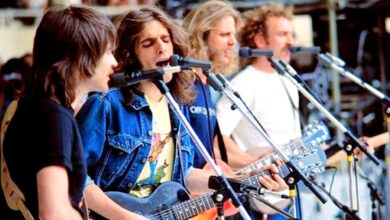“No Woman, No Cry: Bob Marley’s Empowering Anthem of 1974”
Bob Marley’s iconic song, “No Woman, No Cry,” holds a special place in the realm of reggae music and beyond. Released in 1974 as part of his album “Natty Dread,” the song became one of Marley’s most well-known and beloved tracks. Written by Marley himself and credited to Vincent Ford, a friend of Marley’s who ran a soup kitchen in Trenchtown, the song carries both a personal and communal significance.
The composition of “No Woman, No Cry” is a masterpiece in itself. The song features Marley’s distinctive voice accompanied by the soulful harmonies of his band, The Wailers. Its soothing rhythm and heartfelt lyrics create a sense of nostalgia and longing for simpler times. The arrangement of the music reflects Marley’s deep connection to Jamaica and its people, often referred to as the voice of the oppressed.
Lyrically, “No Woman, No Cry” speaks of comfort and reassurance in times of struggle. The lyrics vividly capture the everyday life in the impoverished neighborhoods of Jamaica while offering solace and hope to those facing hardships. The refrain, “Everything’s gonna be alright,” serves as a beacon of optimism and solidarity, resonating with listeners around the world.
The song’s impact extends far beyond its initial release. “No Woman, No Cry” has become an anthem for resilience and unity, a symbol of strength in the face of adversity. Its universal message of love and support has transcended generations and cultures, making it a timeless classic that continues to inspire and uplift.
Bob Marley’s live performances of “No Woman, No Cry” were legendary. His concerts were renowned for their electrifying energy and powerful messages of peace and unity. Marley’s magnetic presence on stage, coupled with the soul-stirring music, left a lasting impression on all who had the privilege of witnessing his performances.
In the realm of music and culture, “No Woman, No Cry” remains a pivotal work that embodies the spirit of reggae music and Bob Marley’s legacy. The song’s enduring popularity and influence have solidified its place as a cultural touchstone, inspiring countless artists and fans alike. Its timeless appeal continues to bring people together and spread the message of love and hope.
In conclusion, “No Woman, No Cry” stands as a testament to Bob Marley’s musical genius and his commitment to spreading positivity through his art. The song’s profound lyrics, heartfelt melody, and universal message have cemented its status as a classic that will continue to resonate with listeners for years to come.





